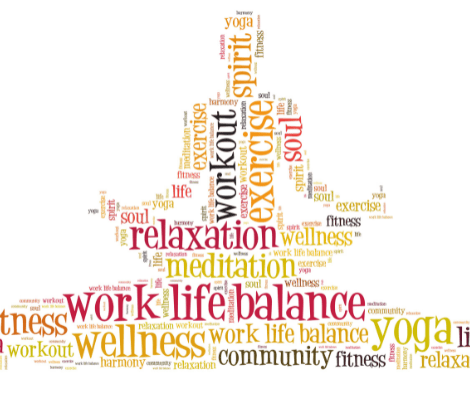A Comprehensive Approach to Stress Management and Well-being through Physical Activity
In the fast-paced world we live in, stress has become an inevitable companion for many. From demanding work schedules to personal challenges, our daily lives are often filled with pressure and emotional turbulence. The toll this takes on our health is profound, as stress and emotions can significantly impact our overall well-being. However, amidst the chaos, there is a powerful tool that can serve as a beacon of hope – fitness. In this blog post, we’ll explore the profound impact of stress and emotions on health and delve into how embracing a fitness routine can be a transformative way to manage them.

The Impact of Stress and Emotions on Health:
Stress is not merely a mental state; it manifests physically, affecting various aspects of our health. Chronic stress has been linked to a myriad of health issues, including cardiovascular problems, weakened immune systems, and even mental health disorders such as anxiety and depression. Moreover, our emotions, if left unmanaged, can contribute to the development and exacerbation of chronic conditions.
When stress becomes chronic, the body continuously releases stress hormones like cortisol, which can lead to inflammation. Persistent inflammation, in turn, has been associated with numerous health problems, ranging from digestive issues to autoimmune disorders. Emotional distress, on the other hand, can impact mental health, affecting cognitive function and overall emotional well-being.

The Transformative Power of Fitness:
Enter fitness – a holistic approach to health that extends beyond physical benefits. Engaging in regular physical activity has been proven to be a powerful antidote to stress and emotional turmoil. Here’s how:
- Release of Endorphins: Exercise triggers the release of endorphins, often referred to as “feel-good” hormones. These chemicals act as natural painkillers and mood elevators, countering the negative effects of stress and promoting a sense of well-being.
- Stress Reduction: Physical activity provides an outlet for the body to release pent-up tension. Whether it’s a vigorous workout or a calming yoga session, exercise helps reduce the levels of stress hormones circulating in the body, fostering a more relaxed state of mind.
- Improved Sleep Quality: Stress and emotions can wreak havoc on sleep patterns. Regular exercise has been linked to improved sleep quality, allowing the body and mind to rejuvenate and better cope with daily stressors.
- Enhanced Cognitive Function: Fitness doesn’t just benefit the body; it’s a boon for the brain too. Exercise has been shown to enhance cognitive function, sharpening focus and reducing the cognitive impact of stress.
- Building Resilience: Through consistent physical activity, individuals can develop resilience – the ability to bounce back from setbacks and navigate challenges more effectively. This newfound resilience becomes a valuable asset in managing the ups and downs of life.

Creating a Fitness Routine for Emotional Well-being:
The key to reaping the emotional benefits of fitness lies in finding activities that resonate with individual preferences and goals. Whether it’s running, weightlifting, swimming, or yoga, the options are diverse. Here are some tips to incorporate fitness into a stress-busting routine:
- Find Enjoyable Activities: Choose activities that bring joy and satisfaction. Whether it’s dancing, hiking, or playing a sport, enjoyment ensures long-term commitment to a fitness routine.
- Set Realistic Goals: Establish achievable fitness goals that align with personal aspirations. This could be as simple as committing to a certain number of workouts per week or participating in a local fitness event.
- Mix It Up: Avoid monotony by diversifying workouts. Combining cardiovascular exercises with strength training and flexibility work not only keeps things interesting but also provides comprehensive health benefits.
- Prioritize Consistency Over Intensity: Consistency is key to reaping the emotional rewards of fitness. Rather than pushing for intense, infrequent workouts, focus on creating a sustainable routine that becomes a natural part of daily life.

In the battle against the adverse effects of stress and emotions on health, fitness emerges as a formidable ally. Beyond the physical transformations, exercise offers a sanctuary for the mind – a space where stress is expelled, emotions find balance, and overall well-being flourishes. By embracing the transformative power of fitness, individuals can build resilience, improve mental health, and embark on a journey towards a healthier, happier life. So, lace up those sneakers, roll out that yoga mat, and let the healing power of fitness guide you to emotional well-being.

Ready to Transform Your Well-being?
Embark on a journey to better health and emotional well-being with the guidance of a dedicated fitness coach and nutrition expert. Our coaches are committed to helping you achieve your goals, whether it’s reducing stress, building resilience, or improving overall vitality.
Connect with our Fitness Coach: Experience personalized workout plans, expert guidance, and unwavering support. Whether you’re a beginner or an experienced fitness enthusiast, our coach will tailor a program to fit your needs. Take the first step towards a healthier, happier you!
For Nutrition Coaching: Transform your relationship with food and fuel your body for optimal well-being. Our nutrition coach will create a plan that aligns with your fitness goals, ensuring you nourish your body with the right nutrients. Elevate your health journey with expert nutritional guidance!
Ready to take charge of your physical and emotional health? Click the links below to schedule a consultation with our Fitness Coach or Nutrition Expert:
Unlock the potential for a healthier, more balanced life. Your well-being journey starts now!

